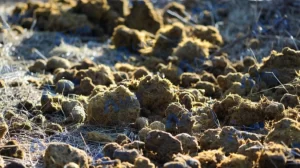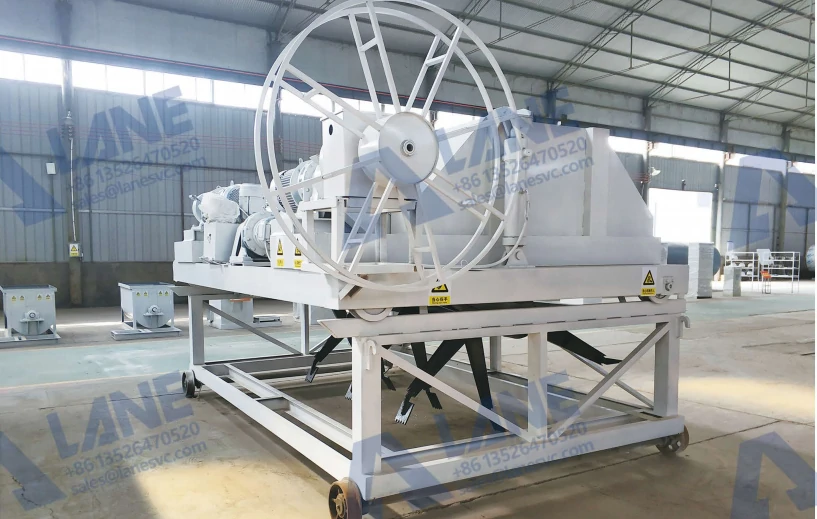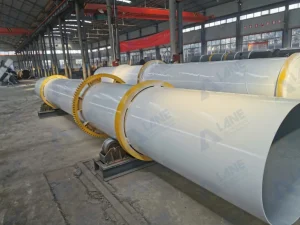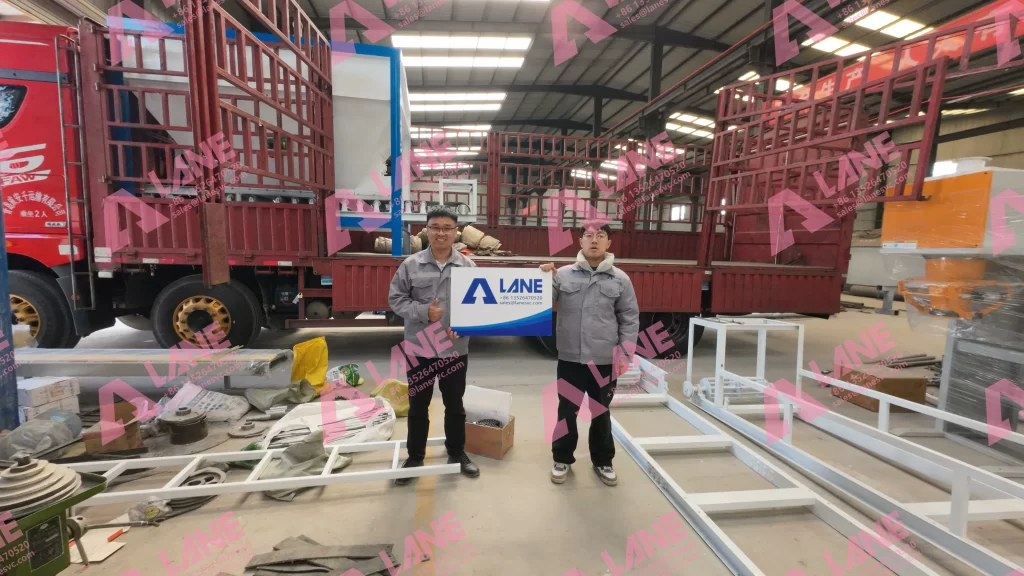Every day, horse farms, riding schools, and equestrian centers face the same challenge: what to do with the constant flow of manure mixed with straw or sawdust? While disposal may seem like the simplest option, it also leads to long-term costs, environmental issues, and missed opportunities. An increasingly popular alternative—composting horse manure for organic fertilizer—turns this “waste” into a superior soil amendment that can be used or sold for profit.
But how does this transformation actually work? What equipment do producers rely on? And why is horse manure uniquely suited for organic fertilizer production? This article presents a complete, practical, scenario-focused guide for farms and manufacturers that want to convert horse manure into valuable organic fertilizer.
Many organic fertilizer operations use poultry manure, cow manure, or food waste. However, composting horse manure for organic fertilizer has several unique advantages—especially when the raw material comes from riding stables.
Horses have a single stomach and inefficient digestion. As a result, much of what they eat—hay, grass, and straw—passes through as partially decomposed fibers. This helps:
create aeration inside compost piles
stabilize moisture
support microbial activity
Raw horse manure mixed with soiled bedding often sits close to the ideal 25–30:1 C:N ratio, which means it needs minimal adjustment before composting.
Horse farms typically generate 15–20 kg of manure per horse per day. With such consistent output, turning this material into fertilizer becomes a steady, predictable business.
Compared with poultry waste, horse manure emits milder odors and clumps less, making it more manageable throughout the production cycle.
These factors make composting horse manure for organic fertilizer an excellent choice for operations looking for reliable, scalable raw materials.

Composting is a controlled aerobic process that uses oxygen-dependent microorganisms to break down organic materials. When done correctly, composting horse manure for organic fertilizer changes raw manure into a stable, pathogen-free, nutrient-rich product.
Composting improves horse manure by:
Raising temperature to 55–65°C, killing harmful organisms
Decomposing undigested fibers into plant-available nutrients
Preventing ammonia loss and nitrogen volatilization
Reducing moisture and volume by up to 50%
Eliminating offensive odors
Converting unstable organic matter into humus-like substances
Raw manure alone has limitations—potential weed seeds, parasites, and unstable nutrients. Composting is what transforms it into safe, high-quality organic fertilizer.
To give you a realistic scenario, imagine you run a stable with 40 horses. Each day, manure plus bedding accumulates, filling the storage area quickly. Rather than paying for removal, you decide to start composting horse manure for organic fertilizer on-site.
Here’s what the production process looks like.
Step 1: Receiving, Sorting, and Adjusting Raw Materials
Horse manure usually comes mixed with:
Straw
Sawdust
Wood shavings
Unconsumed hay
Urine-soaked bedding
This material is collected using a loader and transferred to a designated composting area. If the bedding contains excessive sawdust, you may need to add nitrogen-rich materials (fresh grass or poultry manure) to maintain an ideal carbon-nitrogen balance.
Moisture should be adjusted to 30%-35%.
Step 2: Choosing the Right Composting Method
There are multiple ways to begin composting horse manure for organic fertilizer, but three systems dominate the industry:
Manure is formed into long rows. This system is flexible, simple, and scalable.
Fermentation occurs inside a concrete trench. A groove-type compost turner moves along rails to mix and aerate materials automatically.

Fermentation tanks takes place in a closed system. The machine controls aeration, temperature, and humidity automatically.
For operations producing commercial fertilizer, trench systems and vertical systems offer superior consistency and faster decomposition.
Step 3: Aeration and Turning—The Most Critical Stage
Regardless of which system you use, turning the pile is essential in composting horse manure for organic fertilizer. Turning regulates:
Oxygen supply
Temperature
Moisture distribution
Elimination of anaerobic zones
Breakdown speed
Commonly used turning equipment includes:
Windrow Compost Turner
Used in outdoor windrows. It straddles the pile and turns it while advancing forward. Ideal for farms and mid-size fertilizer plants.
Groove-Type Compost Turner
Mounted on rails above a trench. It slowly advances and turns the material mechanically—perfect for large-scale commercial operations.
Highly maneuverable and suitable for thick, heavy piles of horse manure.
Using these machines cuts composting time dramatically—reducing fermentation periods from several months to as little as 15–25 days.
This is why nearly every producer relies on automated turning while composting horse manure for organic fertilizer.
Step 4: Temperature and Moisture Management
Microbial activity generates heat. The temperature pattern usually looks like this:
Rise Phase (Day 1–3): Microbes become active; heat increases rapidly.
Thermophilic Phase (Day 3–15): Temperature stays between 55–65°C.
Cooling Phase: After several turns, temperature drops gradually.
Maturation Phase: Compost stabilizes and cools to ambient temperature.
To maintain optimal composting, producers monitor:
Temperature: Turning required when >65°C
Moisture: Adjust with water or dry materials
Oxygen: Machines supply this naturally through turning
Consistent conditions ensure rapid and hygienic composting horse manure for organic fertilizer.

Step 5: Curing and Pre-Processing
Once active fermentation ends, the material enters a curing zone for 2–4 weeks. This step allows complex organic molecules to degrade into stable humic substances.
After curing, the material goes through:
Crushing to break down agglomerates
Screening to separate fine powder from oversize particles
Only then is the compost ready for granulation or packaging.
Turning Horse Manure Compost Into Saleable Organic Fertilizer
While some farms use compost directly, many choose to convert it into a commercial-grade fertilizer. After composting horse manure for organic fertilizer, the next stage is processing.
Typical processing line includes:
Vertical or horizontal mixer – blends additives evenly
Organic fertilizer granulator (disc, drum, or new-type) – forms uniform granules
Rotary dryer & cooler – reduces moisture for long shelf life
Coating machine – prevents sticking and improves appearance
Automatic packing scale – bags the product in 25–50 kg units
This transforms simple compost into high-value, market-ready organic fertilizer pellets.
The following equipment is commonly used when composting horse manure for organic fertilizer:
Windrow compost turner
Groove-type compost turner
Fermentation tank
Loader feeder
Semi-wet material crusher
Disc or drum granulator
Rotary dryer and cooler
Rotary screener
The key is to build a system that matches your raw material volume and daily output goals.
If you’re developing a production line for composting horse manure for organic fertilizer, choosing an experienced manufacturer is critical.
Lane Machinery offers powerful advantages:
20+ Years of Fertilizer Machine Manufacturing
Lane has specialized in fertilizer equipment in China for over two decades, supplying complete systems worldwide.
Professional Engineering & Custom Design
Their engineering team designs full production lines—layout, equipment selection, installation—based entirely on your raw materials and capacity requirements.
Full-Scope After-Sales Service
From installation to maintenance and troubleshooting, Lane provides complete long-term support to ensure your production line runs efficiently.
ISO 9001 & CE Certified Quality
Every machine meets international quality and safety standards.
Competitive Manufacturer Pricing
As a direct producer, Lane offers cost-effective equipment without reseller markups.
Expertise Across All Fertilizer Production Lines
Lane supplies organic fertilizer machines, NPK lines, and compound fertilizer equipment.
For anyone serious about composting horse manure for organic fertilizer, Lane Machinery provides the expertise, reliability, and cost advantages needed to build a successful production line.

With rising fertilizer costs and growing demand for organic soil amendments, composting horse manure for organic fertilizer has become one of the most profitable and eco-friendly uses of stable waste. It reduces disposal costs, generates valuable products, strengthens soil health, and supports sustainable agriculture.
And with Lane Machinery’s engineering expertise, certified quality, and comprehensive technical support, producers can turn raw horse manure into premium organic fertilizer more efficiently than ever.
For more details, please feel free to contact us.
Henan Lane Heavy Industry Machinery Technology Co., Ltd.
Email: sales@lanesvc.com
Contact number: +86 13526470520
Whatsapp: +86 13526470520